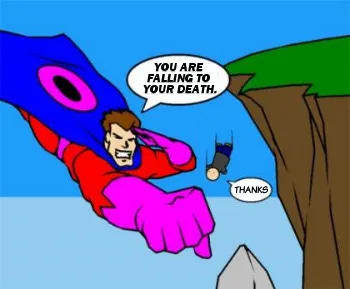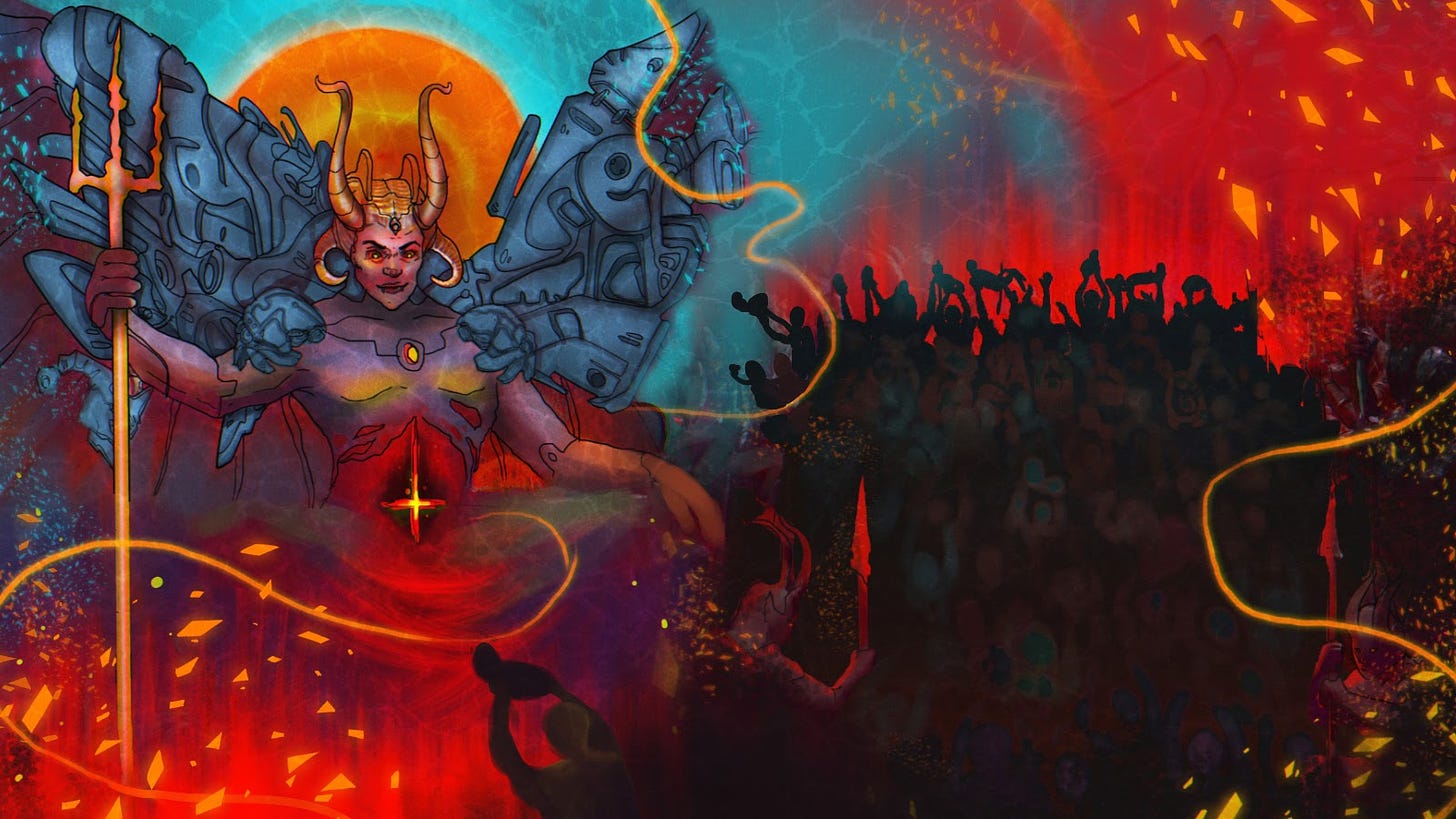The Loneliness Epidemic is a Symptom of Moloch
The Loneliness Epidemic is a Symptom of Moloch
Moloch's Wars, Part I
“What really knocks me out is a book that, when you're all done reading it, you wish the author that wrote it was a terrific friend of yours and you could call him up on the phone whenever you felt like it. That doesn't happen much, though.” -J.D. Salinger, The Catcher in the Rye
On March 12, 2020, Ezra Klein wrote an article at Vox declaring that "Coronavirus will also cause a loneliness epidemic." How did he know, already? Was he part of the press corp that secretly studied in total silence to determine that hydroxychloroquine and other antivirals would fail even before there was published medical data on the topic?
Data minds were telling us prior to the pandemic that we were already in an epidemic of loneliness. In fact, if you perform an internet search (try it) on "loneliness epidemic", you'll find almost as many articles as claimed coronavirus infections. By my own count, there are only seven writers left in the world who haven't written about it.
According to the Centers for Disease Control and Prevention, loneliness and isolation are linked to serious health conditions. Also, they say, immigrants and LGBT people (people who are less like most other people, so who face an uphill climb forming easy and relaxed relationships) are at higher risk.
That's a whole lot of Captain Obvious, and it makes you wonder how much public money went into that messaging. Does anyone click on that CDC page and think, "Oh, I get it now!"? Was it expected that anyone reading would suddenly have that epiphany? And then do what? Learn to code?
Isolation of the Innocent
Many of my most cringeworthy moments of high school involved the pain of sitting in English class with two dozen students and a teacher, discussing great works of literature for which almost nobody in the room had the experience to understand, much less analyze. I'm convinced that this is the primary under-discussed reason for the nearly universal hatred of "the classics". It doesn't get much more cringeworthy than discussing Salinger's portrayal of a young man who was hurt by, and who refused to accept a societal hierarchy built on torture, in a room full of students eagerly looking to join that society while being spoonfed cocktail conversation cheat sheets in the form of SAT vocabulary: alienation, slang, ostracize, coming-of-age, depression, innocence. Phony.
As was typical for me, I got days behind in the class reading. I tended to keep one ear open for predictable discussion about coming-of-age stories, foreshadowing, symbolism, and all those devices whose names and examples were worth four points on a test. For me, most of that class time was spent working on the kinds of math problems that felt like unraveling nifty puzzles, then practicing the art of sufficient trivia and guessing on literature tests. I was more the kind of person who worked or read for four, six, or eight hours at a time on one thing than somebody who spent an hour every other day reading the same book for two weeks. I actively resisted the Pavlovian school bell training, I guess. For that and other reasons, freshman English seemed like a conspiracy to make me hate books. But The Catcher in the Rye was one of those books that I did not put down until it was done.
The next day I joined the class discussion. At some point, I shared my view that Holden's problem was his success at remaining human in the face of the world's baiting charades. He wasn't broken by his schooling. However, that success dictated a loneliness that he could not shake even while mimetically walking through the experiences of the society of "phony" people. So, he did his best to imagine his role in recreating society—being the catcher of children before they went over the cliff to the death of becoming just another brick in the wall, cog in the wheel, rat in the race, or soul sacrificed to Moloch.
"Anyway, I keep picturing all these little kids playing some game in this big field of rye and all. Thousands of little kids, and nobody's around—nobody big, I mean—except me. And I'm standing on the edge of some crazy cliff. What I have to do, I have to catch everybody if they start to go over the cliff—I mean if they're running and they don't look where they're going I have to come out from somewhere and catch them. That's all I do all day. I'd just be the catcher in the rye and all. I know it's crazy, but that's the only thing I'd really like to be. I know it's crazy."
That's when I discovered that explaining Holden Caulfield to a room full of suburban American high school students—most of them taking five or six advanced level classes en route to ascension into elite undergraduate university work—is a great way to find out that you're Holden Caulfield.
If you wrote that Holden was "alienated" and "depressed" on the class test, I'm sure you did just fine. They're worth four points. Each. That's exactly all that the school would want for you to get out of the book, and that's why it's assigned primarily to students who are already inoculated against its message. Otherwise, they'd ban it like an antiviral during a pandemic.
Holden Caulfield Syndrome
I imagine that Salinger must have been the first man alive to understand what doomscrolling through social media would look like decades later.
I had never heard of Holden Caulfield Syndrome before I caught a whiff of this baffling blog post a few years ago during a daily social media scan.
The Holden Caulfield Syndrome
On a day when there were 3 mass shootings in America I sat in a theatre and watched "Six Degrees of Separation." One of the more remarkable parts of the play was Peter's thesis on why such a mild book as "Catcher in the Rye" became a manifesto for so many violent white men in the 20th century. Holden Caulfield's repeated mantra of labeling successful or ambitious people as 'phonies,' his sexual impotence as well as paralyzing fear around women, and his homicidal fantasies against anyone who threatened his masculinity reflects a boy's emotional understanding of the world. And yet this is NOT a manifesto used by men of color. It is a text linked specifically to white male killers who -regardless of political affiliation- represent the overwhelming majority of lone wolf terrorist attacks in this country. Today and many other tragic days feel like they are inexorably linked to all the Caulfield's of the world who bruise too easily, lash out too quickly, and seek to terrorize the world to compensate for their inadequacies. And yet they are still the most privileged demo in America who play the schizophrenic game of demanding the power of a master and the pity of a victim. To maintain such a fragile delusion requires a sociopathic level of narcissism. Those who win short-term gains through inequality end up rotting internally and raging externally. It is a unique disease: Affluenza. It has killed more people than cancer. No one is looking for a cure.
What's wrong with this is exactly everything. Holden Caulfield's complaint wasn't about successful or ambitious people—it was about Moloch. His "sexual impotence" seems explained by his total disorientation while trying to mimic the steps of society's willing degenerates in an attempt to experience the "normalcy" that he cannot comprehend. He craves familial and community expression of real human love, though you might not get that if you're overly focused on the cuss words and slang. Holden is not driven to violence like a mass murderer, though the state of society drains him. What he wants is to take the task of fixing that onto his own shoulders—to save the children before their quick doom. He is not schizophrenic—he just doesn't know how to accomplish the Herculean feat that he can only imagine as catching children in the rye. Nothing in his experience or education prepares him for what would need to be accomplished, so he can only describe it in his own strange poetic sense.
But the strange linking of Holden to violence is worse than misunderstanding Holden Caulfield, whom I wouldn't expect everyone to get (or we wouldn't be in the state of chaos we are in). The author of the post misses the real narcissist, the conman Paul, who is the central character of Six Degrees of Separation. Paul leaves pain and death in his wake before moving on to a new target, and then ends with what stands out as an artificial apology for Paul—like maybe Paul's victims…flawed rats in Moloch's rat race…deserved what they had coming to him.
Or maybe it's just that the souls devoted to Moloch give up on being deserving souls?
It is a strange quirk of history that three famous shooters were tied to The Catcher in the Rye, though in only one of those cases did the book seem important to the case. Is that Moloch's way of asking people not to read a book that reminds people of what is given up in the acceptance of Moloch—or that simply warns people that Moloch exists. People who read too much into famous narrative news stories about killers, and internalize the connection in their Matrix minds as "reality", seem not to know or have noticed that half of Salinger's development of Holden Caulfield as a character was story after story about the way other people's violence repulsed him. Calling that a syndrome describes a sieve for a terrible society.
When you're three steps ahead, you're the catcher in the rye. No wonder Salinger was hesitant to allow his book to be made into a movie. If there was ever a guaranteed failure of a movie (and there have been many) to the point of destruction of a novel, The Catcher in the Rye is it. Holden isn't crazy, and he's not a lunatic. But he is lonely for a community, so the lunatics need to find one another. Just remember that such a gathering won't be allowed on social media.
It's okay to laugh when you cry. That the tragicomedy emoji isn't the default is exactly why Salinger would have hated Facebook.





Comments
Post a Comment